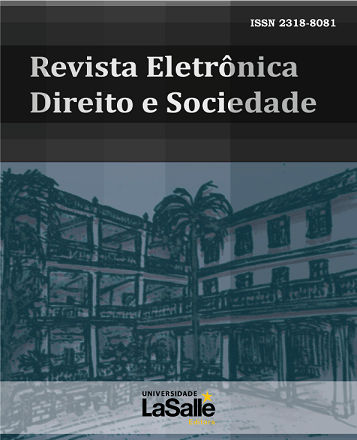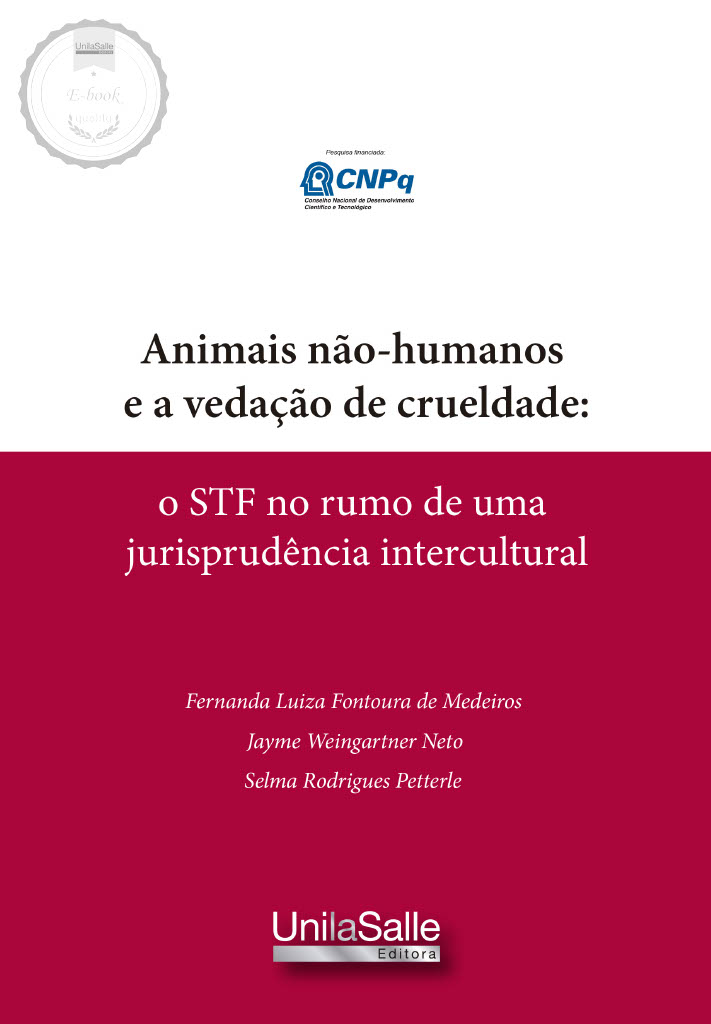Access to Justice, Power, and Criminal Procedure
Coordinator:
Diógenes Vicente Hassan Ribeiro
Email:
diogenes.ribeiro@unilasalle.edu.br
Research Line:
Line 1 - Effectiveness of Law in Society
Promotion:
SOCIEDADE PORVIR CIENTIFICO - (Programa Unilasalle de Pesquisa)
Research group of undergraduate students and professors from UNILASALLE, Canoas, RS. It aims to critically describe the problems of access to justice, in general, understood as access to jurisdiction, access to rights, and access to justice itself.
Access to Justice, Power, and Criminal Procedure
Algorimative Expectations
Coordinator:
Germano André Doederlein Schwartz
Email:
germano.schwartz@unilasalle.edu.br
Research Line:
Line 2 — Society and Fragmentation of Law
Promotion:
SOCIEDADE PORVIR CIENTIFICO - (Programa Unilasalle de Pesquisa)
Contemporary society has self-reproduced a structure to reduce its own complexity: algorithms. Its basic function is precisely to reduce the complexity of expectations (cognitive and regulatory) and also of expectations of expectations (legal decisions). When viewed from this perspective, algorithms, through artificial communications (Esposito), influence both (a) regulatory expectations (Luhmann) and (b) legal norms (Hydén). The present research project will answer the following question: is it possible to defend the existence of algonormative expectations? To this end, methodologically, it seeks to delimit how the theories of the authors mentioned can be used to develop the concept of algonormative expectations. To this end, at first, it is necessary to address the bases of Hydén's somewhat normal, and, in a second stage, to combine them with Luhmannian regulatory expectations, finally seeking, together with the artificial communication defended by Esposito, to verify under what conditions it is possible to observe the algonormative expectations.
Algorimative Expectations
Ciências Criminais e Cultura Brasileira: representações da violência urbana no Brasil contemporâneo
Coordinator:
José Antônio Gerzson Linck
Email:
jose.linck@unilasalle.edu.br
Research Line:
Line 2 — Society and Fragmentation of Law
Promotion:
SOCIEDADE PORVIR CIENTIFICO - (Programa Unilasalle de Pesquisa)
O projeto discorre sobre epistemologia nas ciências criminais e sua compatibilidade com os modelos de testemunhos de violência presentes na antropologia e literatura. Neste contexto, demonstra dissonâncias e similitudes em relação à forma com que a teoria da prova estrutura o testemunho processual-penal. A característica interdisciplinar da criminologia permite a aproximação com narrativas de violência produzidas em primeira pessoa, sobretudo por vítimas de violência institucional. As narrativas de sobrevivência situam-se ao mesmo tempo na descrição crua das tentativas de controle subjetivo (discursam sobre um modelo de existência) e físico (trabalham com hipóteses concretas de aprisionamento e execução sumária), mas também na criação de espaços de memória e de fuga de tais controles de subjetividade. O projeto situa-se sobretudo na criminologia e na sociologia jurídica, mas está em relação interdisciplinar com o direito internacional público, o cinema e a literatura testemunhal.
Ciências Criminais e Cultura Brasileira: representações da violência urbana no Brasil contemporâneo
Common Goods, Legal Pluralism, and Human Rights
Coordinator:
Antonio Carlos Wolkmer
Email:
antonio.wolkmer@unilasalle.edu.br
Research Line:
Line 1 - Effectiveness of Law in Society
Promotion:
SOCIEDADE PORVIR CIENTIFICO - (Programa Unilasalle de Pesquisa)
The Research Project: Common Goods, Legal Pluralism, and Human Rights is aimed at studying the interrelation between common goods and Legal Pluralism, following the Research Project: Common Goods, New Rights, and Emancipatory Democratic Processes, initiated in 2018 by the Common Network, with the inclusion of new international professors from Argentina, Colombia, Ecuador, Uruguay, Portugal and Spain. It is an interdisciplinary project that aims to challenge the liberal legal framework with the theoretical/conceptual instruments of participatory community legal pluralism and the theories of the Common that shape the contemporary debate. The scope of the research that will be carried out is to outline the criticism of the privatizing neoliberal state that has dramatically intensified social inequalities and destroyed the material bases of life, proposing/making visible collective practices that promote spaces for cooperation. These experiences establish the Common as a central element of radical democracy in the 21st century, providing for the realization of fundamental human needs, as well as consolidating, in addition to co-participation, a life in common with just ecological transition practices. The hypothesis of this research is based on the recognition that the different experiences of collective action, driven by the political principle of the common, or even those articulated by “Buen Vivir”, are fundamental to recognize new possibilities for public-community collaboration, based on democratic values, implying a new legal framework. The abstract and supposedly universalist formulation of a liberal-individualist tradition does not allow us to see its historical/contextual, complex and relational concreteness. It is in this direction that we can move forward in the discussion of providing the communes as the material, social and cultural basis of another conception of Human Rights, of community rights, of relational rights, and of plural rights. In this direction, the specific objective is to analyze the relationship between the common goods and insurgent law with public policies in the recent experiences of the new municipalities in Spain. As Rubbens Martinez points out, to understand how to “build another way of governing public resources that allows greater economic redistribution, real mechanisms of direct democracy and greater citizen control”. On the other hand, analyze the interpretative shift that results from the praxis that establish the common, in the experience of the new Andean Constitutionalism, based on the worldview of “good living” and on the dialogic exercise of interculturality, which allows us to move towards the confluence of a system of plural normativity. In this context, legal pluralism gains meaning as a response to the different praxis establishing the communes as a materialization of relational Human Rights. Thus, understanding the legal tools and the essential elements for a new legal framework that not only promote community models of public collaboration, but also allow an ecologically just social reproduction is fundamental in the face of the challenges that threaten the reproduction of life in the contemporary world. Finally, the general objective of the project is to examine the emerging themes of the common goods, in particular: the interrelation between the common goods and Legal Pluralism, the environmental common goods and the new rights and the digital commonalities.
Common Goods, Legal Pluralism, and Human Rights
Constitutional Sociology: Study of Neoliberal Reforms in Transformative Constitutionalism
Coordinator:
Lucas Machado Fagundes
Email:
lucas.fagundes@unilasalle.edu.br
Research Line:
Line 2 — Society and Fragmentation of Law
Promotion:
SOCIEDADE PORVIR CIENTIFICO - (Programa Unilasalle de Pesquisa)
The contemporary constitutional state is a phenomenon that, in the second half of the 20th century, pointed to a perspective of filling constitutional structures with democratic content. Thus, in realities such as Latin America, crossed by profound socioeconomic inequalities, institutionalized violence, and authoritarian institutions, citizens saw constitutionalism as a potential to transform socio-historical ills. In view of this, at the end of the 20th century and the beginning of the 21st century, several constituent processes emerged in Latin America that perfected Constitutional Charters with aspects of democratic participation and the profile of social citizenship. However, these tasks were gradually dismantled by “" disconstituent” constitutional reforms; that is, by legislative processes with political and legal foundations with a profound impact of obstructing the realization of democratic and citizen constitutional promises. Thus, it is a matter of analyzing the constitutional legal form adopted by Latin American countries at the end of the 20th century and the beginning of the 21st century in the face of the harassment of speculative financial capitalism, and especially analyzing the contemporary constitutional movement called transformative, democratic or citizen constitutionalism, especially the contradiction of democratic constitutional structures with neoliberal purposes. The objective is to confront democratic constitutional structures with the neoliberal political interests that achieve constitutional reforms and mutations that directly impact the social reality of the States of the region. The central problem is that neoliberal reforms disarm the transformative and citizen democratic profile of constitutionalism in the 21st century, disauthorizing public authorities from their constitutional commitment and disabling possibilities for social struggle with constitutional support. Thus, through the Dusselian analytical methodology and the dialectic of the concrete, an attempt will be made to analyze the socio-legal determinations that reveal the pseudo-concreteness of the totality of the democratic constitutional phenomenon in the face of the processes that dispose of an exclusionary, austere political economy at the service of financial oligarchies. The expected result is to reveal the concrete determinations that dismantle the transformative potential of Latin American constitutions, highlighting the legal form of constitutional reform along the lines of neoliberal interests in the face of popular needs in contemporary society.
Constitutional Sociology: Study of Neoliberal Reforms in Transformative Constitutionalism
Contemporary conjugalities and parenting: gender and sexualities in their legal and social aspects
Coordinator:
Paula Pinhal de Carlos
Email:
paula.carlos@unilasalle.edu.br
Research Line:
Line 2 — Society and Fragmentation of Law
This research project deals with the topic of contemporary conjugalities and parenting and their effects on the law. The theme of conjugalities includes the various configurations of relationships, such as marriages and stable unions, with housing in the same residence or in separate residences and polyaffective unions, in addition to LGBTQIA+ marriages. With regard to parenting, it includes the repercussions of the dissolution of stable unions and marriages, co-parenting, multiparenting, LGBTQIA+ parenting, and also those resulting from the use of new reproductive technologies. It seeks to answer the following question: what are the main social transformations carried out in the context of conjugality and parenting in contemporary times and in what way do these transformations impact the Law? The general objective is to understand the impacts of the social transformations carried out in the context of conjugalities and parenting on the law. Regarding the methodology, it is proposed to carry out empirical research in law of a qualitative nature and based on the inductive method. Bibliographic, documentary and empirical research will be carried out, through the collection and analysis of legal regulations, judicial decisions, and news. Bibliographic research will not be restricted to the legal scope and will seek to collect and analyze all Brazilian production on the subject also within the scope of Social Sciences. Thus, it is expected to understand the impacts and modifications made to the Law by contemporary conjugalities and parenting, analyzing how the Executive, Legislative and Judicial Branches respond and/or regulate these phenomena.
Contemporary conjugalities and parenting: gender and sexualities in their legal and social aspects
Historicity, New Grammars of Human Rights, and Citizenship in Brazil: A View from the Latin American and African Perspective
Coordinator:
Daniela Mesquita Leutchuk de Cademartori
Email:
daniela.cademartori@unilasalle.edu.br
Research Line:
Line 2 — Society and Fragmentation of Law
Promotion:
SOCIEDADE PORVIR CIENTIFICO - (Programa Unilasalle de Pesquisa)
This project is based on a method of historicization capable of perceiving new perspectives for Brazilian human rights and citizenship, in a Latin American and African scenario. The understanding of new grammars of human rights and citizenship through the perspective of historicity involves the idea that historical events should be learned not continuously but through ruptures, ceases, and changes of route. (FONSECA, 2011, p. 24). In this sense, there is an urgent need to rethink the sources and experiences of the past related to the normative tradition, in order to establish a critical methodology for the analysis of social practices in order to provide the basis for a process of awareness and emancipation. According to Antônio Carlos Wolkmer (2014, p. 3), a new methodological order capable of describing the Law in such a way as to demystify it, must involve social, economic and political interdisciplinarity and a reinterpretation of the sources of the past. This criticism should promote the renewal of legal historicity, especially its sources, through the dialectics of social relations and their social relations. When considering human rights, as a starting point is the understanding that they are based on praxis or socio-political foundations, and fulfill a dual function: acting, either as tools for liberation, or as instruments of functional ideologization for oppressive practices, protecting or even disguising minority privileges. (ROSILLO MARTINEZ, 2016, p. 282). Thus, based on thoughts such as that of the Basque and Latin American philosopher of liberation, Ignacio Ellacúría (1930-1989), it is possible to analyze praxis, considering dynamic elements that integrate historical reality, ranging from materiality to the personal dimension, and from the individual to the social body. (SENENT DE FRUTUS, 2016, p. 282). As a consequence, seeking an absolute and dogmatic foundation for human rights becomes a meaningless operation. A complex conception of human rights must involve their apprehension as moments belonging to different historical forces, in other words, ideological, legal, political and social moments. (ROSILLO MARTINEZ, 2016, p. 287). This is how it will be possible to perceive the original rights of indigenous and Afro-descendant peoples, based on their struggles in search of the right to live in accordance with their own right. The historicization of human rights involves answering the following questions for whom, for what, and from where. If human rights were historicized starting from the First World, it will be found that international human rights instruments have an acceptable degree of compliance. The next step will be to realize that these countries have a historic model for the recognition of human rights and are pioneers in updating and institutionalizing them historically. (SENENT DE FRUTUS, 2016, p. 434). Now, if the ideal of a few cannot be converted into the behavior of the majority of humanity, it cannot be said that this ideal is a human ideal. The historicizing perspective will make it possible to place in a concrete social context, normative concepts such as human rights, or other bearers of high axiological significance on the basis of which a legal and social system is intended to be justified and guided, to see what the real role or function they are fulfilling. It should be added that this method is not definitive, since it will not produce a moral and social closure of human rights. (SENENT DE FRUTUS, 2016, p. 426). Also, the theme of the project starts from the observation that Latin America is also Africa; that is, to analyze Latin America today and especially Brazil- it is.
Historicity, New Grammars of Human Rights, and Citizenship in Brazil: A View from the Latin American and African Perspective
Integrando políticas públicas para a efetividade de direitos
Coordinator:
Fernanda Dalla Libera Damacena
Email:
fernanda.damacena@unilasalle.edu.br
Research Line:
Line 2 — Society and Fragmentation of Law
Promotion:
SOCIEDADE PORVIR CIENTIFICO - (Programa Unilasalle de Pesquisa)
O projeto tem como pano de fundo a crise civilizatória, que afeta o ambiente, contribui para o aquecimento global e potencializa a ocorrência de diferentes tipos de desastres devido a ausência/deficiência de boa gestão frente a riscos clássicos, sistêmicos e potencialmente catastróficos. Em um movimento de dentro para fora, mas sem desconsiderar as influências internacionais, investiga-se em que medida a implementação da integração da Política Nacional de Proteção e Defesa Civil a um conjunto de políticas públicas setoriais nacionais pode contribuir para a efetividade de direitos humanos e fundamentais frente à contingência, complexidade e consequências típicas das questões ambientais, climáticas e de desastres. O referencial teórico parte da Teoria Social dos Desastres, é complementado por aportes epistemológicos da Teoria do Direitos dos Desastres, do Direito Ambiental e trabalhos que investigam a possibilidade de intersecção entre políticas públicas e efetividade de direitos
frente a riscos clássicos, sistêmicos e potencialmente catastróficos. A pesquisa será desenvolvida considerando: (i) o mapeamento de legislação nacional visando identificar convergências, lacunas, contradições e reflexos na integração intersetorial e efetividade de direitos; (ii) uma análise de marcos internacionais envolvendo ambiente, clima e desastre para verificar em que medida foram integrados à legislação brasileira e qual o seu grau de implementação; (iii) a identificação de experiências concretas e que usem evidências para identificar as intervenções mais eficazes contra problemas globais com integração setorial no Brasil e no exterior; e (iv) a pontuação dos principais entraves operacionais, políticos e técnicos dificultadores da articulação entre das políticas estudadas, e a ponderação das potencialidades de integração de maneira acoplada. A metodologia mescla abordagem qualitativa e quantitativa, sendo a primeira predominante, aplicada por meio de técnicas complementares de coleta e análise de dados, combinando quatro estratégias principais: revisão da literatura, aplicação de questionário estruturado, realização de grupos focais e entrevistas semiestruturadas. A partir do mapeamento de lacunas, limites e potencialidades mencionados, pretende-se contribuir para o desenvolvimento de diretrizes capazes de fortalecer integração entre a Política Nacional de Proteção e Defesa Civil e as demais políticas
setoriais, mirando a efetividade de direitos humanos e fundamentais.
Integrando políticas públicas para a efetividade de direitos
Justiça Restaurativa e Marco Legal: aportes para o caso brasileiro
Coordinator:
Raffaella da Porciuncula Pallamolla
Email:
raffaella.pallamolla@unilasalle.edu.br
Research Line:
Line 1 - Effectiveness of Law in Society
Promotion:
SOCIEDADE PORVIR CIENTIFICO - (Programa Unilasalle de Pesquisa)
Atualmente, assiste-se no Brasil a multiplicação de iniciativas de Justiça Restaurativa, a grande maioria concebidas e implementadas pelo Poder Judiciário, e destinadas a abordar os mais variados temas, muitos deles alheios aos conflitos criminais. Apesar da crescente discussão acadêmica e da abrangência da aplicação da justiça restaurativa, ainda há muito o que discutir e avançar no campo jurídico, sobretudo em razão da lacuna legal referente à regulamentação da aplicabilidade da justiça restaurativa no âmbito da justiça criminal. A presente pesquisa visa a investigar o processo de construção (ou tradução) da justiça restaurativa no Brasil, tendo como foco a reflexão quanto à necessidade e adequação de se legislar sobre a matéria no campo penal com o propósito de aumentar o seu uso neste âmbito. Parte-se do cenário atual que reflete um desenvolvimento frágil e não uniforme da justiça restaurativa no âmbito penal no Brasil e busca-se compreender os riscos, os obstáculos e as vantagens de se introduzir a justiça restaurativa na legislação penal e processual penal brasileira, a partir de experiências estrangeiras e também da análise do nosso contexto nacional. O problema de pesquisa gira em torno da questão se é possível instituir-se legalmente a justiça restaurativa no âmbito da justiça criminal e, ao mesmo tempo, evitar a cooptação do modelo restaurativo pelo modelo tradicional de justiça criminal. O objetivo geral da pesquisa consiste em analisar, a partir do estudo de legislações estrangeiras, as possibilidades de se introduzir a justiça restaurativa no ordenamento jurídico pátrio, sem que isso signifique uma deformação do referido modelo de justiça. Para alcançar os objetivos postos no projeto, será feita revisão bibliográfica dos temas centrais (modelos de justiça restaurativa e justiça criminal brasileiros e ordenamentos jurídicos estrangeiros de interesse para o projeto); levantamento documental de propostas legislativas em trâmite no Brasil sobre justiça restaurativa; e análise documental de decisões judiciais de Tribunais brasileiros que abordam o tema da justiça restaurativa em âmbito criminal. Ao final da pesquisa, espera-se colaborar na construção do marco normativo da justiça restaurativa no Brasil.
Justiça Restaurativa e Marco Legal: aportes para o caso brasileiro
Law within the Framework of International Instructions and the Global Society: An Analysis of the Effectiveness of International Norms and Regimes
Coordinator:
José Alberto Antunes de Miranda
Email:
jose.miranda@unilasalle.edu.br
Research Line:
Line 1 - Effectiveness of Law in Society
Promotion:
SOCIEDADE PORVIR CIENTIFICO - (Programa Unilasalle de Pesquisa)
International institutions and international law occupy an important space within the framework of global governance. Even at a time when multilateralism shows signs of weakening, it is essential for the balance of the international system and, consequently, for global society. The analysis of international institutions based on the sociological dimension of international law can greatly contribute to a better understanding of these institutions and their relationship with society. The objective of this research project is to analyze the relevance of the sociological dimension of international law for the analysis of international institutions based on international cooperation actions in their most varied fields of law, through international institutions and States, based on the changes that have been taking place in global society, in law and politics in recent years. International law can be thought of based on legal sociology, deeply involved in various factors and processes that can be said to be sociological. There are numerous international legal rules that affect and reflect societal factors and processes such as norms, socialization, identity, and collective memory. Economic and political dimensions of international law are superimposed with sociological dimensions. The observation of international law should not be limited to the analysis of official legal texts such as treaties or decisions taken by international judicial courts. It appears that today's international institutions have been intensely transformed, so that they began to regulate many problems of the international social, political and economic environment that traditionally correlate with the scope of action of States. In this sense, we need to be aware that, just as within the State, world society reveals highly regulated areas, as well as areas where a regulatory order is absent or ineffective, and we need to understand that the sociology of law cannot apply internationally the same models that have proven to have an explanatory power within the society ordered by the State.
Law within the Framework of International Instructions and the Global Society: An Analysis of the Effectiveness of International Norms and Regimes
Law, Language, Communication, and Access to Justice
Coordinator:
Diógenes Vicente Hassan Ribeiro
Email:
diogenes.ribeiro@unilasalle.edu.br
Research Line:
Line 1 - Effectiveness of Law in Society
Promotion:
SOCIEDADE PORVIR CIENTIFICO - (Programa Unilasalle de Pesquisa)
The research problem, therefore, lies in the cyclical questioning between language, communication, law, and access to justice. According to Luhmann, hypercomplexity is the engine of the evolution of society, thus presenting new challenges to the law and to access to justice. The legal system/law must evolve and continue to differentiate itself to keep fulfilling the function of stabilizing consistently generalized behavioral expectations and, finally, providing time, or preventing time from being wasted in the absence of consistently stabilized expectations.
Law, Language, Communication, and Access to Justice
Living Constitution and Social Effectiveness: Imbrications Between Law, Philosophy, and Sociology
Coordinator:
Hilbert Maximiliano Akihito Obara
Email:
hilbert.obara@unilasalle.edu.br
Research Line:
Line 1 - Effectiveness of Law in Society
Promotion:
SOCIEDADE PORVIR CIENTIFICO - (Programa Unilasalle de Pesquisa)
The project seeks to relate law, philosophy and sociology, with special attention to empirical research in order to provide factual and social findings, amalgamating theory and practice. The project highlights the importance of the philosophical approach in the study of social and legal phenomena. Philosophy is conceived as a condition for the possibility of knowledge, occupying an earlier, hermeneutic level, and at the second, later, pragmatic level, there is the recognition that law and sociology are not incommunicable sciences, quite the contrary, there are indispensable interactions between them. Based on these assumptions, constructions are sought in favor of a common humanistic end. In the connection of law, philosophy and sociology, in an indispensable pragmatic investigation, a critical rationality that transforms reality is fostered. This path presupposes the need to recognize the centrality of the human being and their insertion in the world, especially in the face of other human beings. From there, from Dasein, a symbolic human being, with images of the world formed from its contextuality. This formation of the subject, with its prejudices and prejudices, can be rationally and dialectically transformed, in an effort that seeks to remove subjectively ingrained obstacles. These obstacles include those resulting from a modern instrumental and empty rationality, structuring a legal and social data that has always been perennial and immutable, producing individuals who seek to adapt to this order, giving up their critical and dialectical rational capacity, in favor of apathy, indifference and impotence. There is interest in revealing a social structure that involves humanistically retrogressive arrangements, which, in addition, is capable of masking them. For this reason, it is indispensable to train citizens capable of recognizing and critically and humanistically transforming those sociological elements that lead us to embark on this perverse path. Self-sufficiency that is also sought in the subject of law to dispel the illusion of technique by technique, so that the legal can also fulfill a critical social function. In this work, stimulating knowledge, promoting the expansion of the citizen's majority, in a critical and dialectical sociological and legal perspective, in addition to empty rationality, humanism is proposed as the ultimate ratio. The diagnosis of a modern society and legal system philosophically involved in the subject-object relationship, guided by an instrumental rationality, which ends up serving the constant production and reproduction of a humanistically indifferent society, is indispensable. Faced with this awareness, transformed critical possibilities must be rationalized, especially in the face of a Constitution conceived from the perspective of living law, argumentative dialectics, and the condition of hermeneutical-philosophical possibility. In the agglutination of knowledge (philosophy, law and society), especially in the strengthening of empirical research, in the search for data extraction, through various investigative methods, in contextual excerpts, it will be possible to (un) legitimate legal and sociological propositions and constructions. The empirical elements will be fundamental for the formation of discourses in the various areas of knowledge involved, always striving for the maintenance of guarantees and the promotion of democratic advances, based on the fundamentals of human rights.
Living Constitution and Social Effectiveness: Imbrications Between Law, Philosophy, and Sociology
Memórias do Cárcere: Violência, dignidade e reconhecimento em grupos privados da liberdade
Coordinator:
Marcos Flávio Rolim
Email:
marcos.rolim@unilasalle.edu.br
Research Line:
Line 2 — Society and Fragmentation of Law
Promotion:
SOCIEDADE PORVIR CIENTIFICO - (Programa Unilasalle de Pesquisa)
A violência sofrida nos marcos do Estado Democrático de Direito pelas pessoas privadas de liberdade é, em larga medida, legitimada socialmente. O estigma que condenados e egressos, adultos e adolescentes, enfrentam evidencia um processo de exclusão social bem mais amplo do que aquele condicionado por variáveis socioeconômicas. Este projeto de pesquisa pretende investigar as características da memória social construída pela experiência de privação de liberdade de adultos e adolescentes do Rio Grande do Sul e seu problema consiste em compreender como a memória coletiva dos encarcerados traduz a busca por dignidade e reconhecimento, considerando as interações violentas e os estigmas sociais. O delineamento da pesquisa é sequencial e exploratório com metodologia mista, quali-quanti. A coleta de dados quantitativos será feita nos moldes das pesquisas de vitimização, com questionário estruturado aplicado em estabelecimentos prisionais e unidades socioeducativas para cumprimento de medidas em meio fechado. O campo empírico com dados qualitativos será formado pelas respostas colhidas em entrevistas em profundidade e em grupos focais sobre o processo de construção e compartilhamento de memórias. Mais do que as memórias da violência, nos interessa reconstituir o processo pelo qual a memória coletiva opera como instrumento ativo de resistência. Espera-se que o estudo possa contribuir para a formação de uma agenda de pesquisas no Brasil sobre memórias da violência e que seus resultados estimulem o delineamento de políticas públicas de prevenção à vitimização e de reparação.
Memórias do Cárcere: Violência, dignidade e reconhecimento em grupos privados da liberdade
Mulheres e Meninas Esquecidas nas Enchetes de 2024 no Rio Grande do Sul: Diagnóstico sobre as Respostas de Garantia de Direitos em Canoas e Rio Grande
Coordinator:
Paula Pinhal de Carlos
Email:
paula.carlos@unilasalle.edu.br
Research Line:
Line 2 — Society and Fragmentation of Law
Este projeto de pesquisa foi aprovado pela FAPERGS no Edital 6/2024, voltado a desastres climáticos e possui caráter interdisciplinar e congrega pesquisadoras e pesquisadores que atuam na instituição co-partícipe, à qual está vinculada a proponente e coordenadora, e a instituições parceiras. Tais docentes atuam em diferentes áreas do conhecimento, como Direito, Sociologia, Economia e Ciência da Computação. A proposta resulta sobretudo de discussões efetuadas no grupo de pesquisa CNPq “Efetividade dos direitos e Poder Judiciário”, vinculado à UNILASALLE e liderado pela coordenadora principal deste projeto, e no Laboratório de Acesso à Justiça e Direitos Humanos, vinculado à FURG e liderado pela coordenadora adjunta deste projeto. Baseia-se, ainda, nas experiências de abrigamento de pessoas atingidas pelas enchentes das universidades envolvidas na proposta. No que se refere especificamente à UNILASALLE, destaca-se a presença de docentes com vínculo tanto ao Programa de Pós-Graduação em Direito, quanto ao Programa de Pós-Graduação em Memória Social e Bens Culturais. No que tange à FURG, tanto a coordenadora substituta quanto o outro pesquisador estão vinculados ao Mestrado em Direito e Justiça Social. Dessa forma, seis programas de pós-graduação de quatro universidades diferentes do Rio Grande do Sul estão inseridos na proposta, além de pesquisadoras e pesquisadores independentes, com vínculo ou sem vínculo com universidades do Estado.
Mulheres e Meninas Esquecidas nas Enchetes de 2024 no Rio Grande do Sul: Diagnóstico sobre as Respostas de Garantia de Direitos em Canoas e Rio Grande
Reconceptualizing Human Rights based on the Democracy of the Common: Towards a Plural Normativity
Coordinator:
Antonio Carlos Wolkmer
Email:
antonio.wolkmer@unilasalle.edu.br
Research Line:
Line 1 - Effectiveness of Law in Society
Promotion:
Conselho Nacional de Desenvolvimento Científico e Tecnológico - Bolsa
The general objective of the project is to examine and introduce approximations and adjustments between Politics and Law, within the specific frameworks of regulatory pluralism and the reinvention of rights as human rights, seeking a horizontal space of confluence and interaction in the democratic and participatory everyday life of the common, as a decolonial expression of insurgent, autonomous processes of management, control and community regulation, affirming and guaranteeing the construction of new subjectivities, resulting from struggles and resistances appropriate to peripheral realities, strengthening the links between social life and nature's life cycles. In this direction, it is necessary to reinvent forms of knowledge production, social processes, and emerging regulatory models that dialogue and relate human life, nature and culture. And facing such challenges implies, as proposed by authors such as Ramón Grosfoguel, Raewyn Connell, Syed F. Alatas, Enrique Dussel, B. Souza Santos, decolonizing the Social Sciences, that is, refounding social theories and their implications in the field of normativity. This dynamic focuses on questioning/dismantling traditional concepts, combating ideal types, the product of eurocentered linearity, opening up to the culture of diversity and other forms of knowledge, which allow dialogue, such as those revealed from the South, overcoming the dividing line that separates being from non-being, human from non-human and human from nature. The challenge is, therefore, to counteract classical north-eurocentric epistemological constructions, theoretical-practical proposals, recognizing other knowledge in the field of social theory and law theory. Thus, it is justified to be guided by a diatopic dialogue with the hegemonic epistemological matrices of the North, but with force the production of subordinated or hidden knowledge from the local, the peripheral, the other, without losing its own identity and autonomy.
Reconceptualizing Human Rights based on the Democracy of the Common: Towards a Plural Normativity
Right to Health in Mercosur during the Transpandemic Period: possible fraternal communications
Coordinator:
Sandra Regina Martini
Email:
sandra.martini@unilasalle.edu.br
Research Line:
Line 2 — Society and Fragmentation of Law
Promotion:
CNPq SOCIEDADE PORVIR CIENTIFICO - (Programa Unilasalle de Pesquisa)
As a result of the lasting period of the COVID-19 pandemic, it can already be established that we are in a transpandemic period. It is important to highlight, in this case, that when studying health-related topics, health law plays a fundamental role in research. MERCOSUR, as an economic and social block that seeks to integrate member countries' actions, should, in theory, act together in the face of the spread of the virus, which has a high lethality and transmission rate. Based on fraternal law, the study aims to identify possible fraternal communications between MERCOSUR member countries during this hazy period that is still being faced and to analyze ways that may contribute to the implementation of the fundamental right to health. Current CNPq Research Productivity Scholarship
Right to Health in Mercosur during the Transpandemic Period: possible fraternal communications
Sergio Vieira de Melo Chair
Coordinator:
José Alberto Antunes de Miranda
Email:
jose.miranda@unilasalle.edu.br
Research Line:
Line 1 - Effectiveness of Law in Society
Promotion:
SOCIEDADE PORVIR CIENTIFICO - (Programa Unilasalle de Pesquisa)
The CSVM of LA SALLE UNIVERSITY promotes actions in three axes: in the teaching axis, with the commitment to offering disciplines on topics of interest to the CSVM in the Graduate Law Program, where the Chair is filled, (master's and doctorate), namely: Sociological Theory of Human Rights; Global Society Law and International Politics; Society and Access to Justice; Anti-Discrimination Law and Contemporary Challenges; and in the university's partner PPGs such as a Postgraduate Program in Social Memory and Cultural Assets (master's and doctorate), namely: Social Memory; Identity, Difference and Recognition; Emerging Themes and Cultural Expressions, the Graduate Program in Education, such as: Right to Education: From Theoretical-Legal Foundations to Public Policies; Subjectivities, Cultural Diversity and Education: Contemporary Sociabilities and the Graduate Program in Health and Human Development, such as: Health, Culture and Society, Vulnerability in Health, Interdisciplinary Thematic Seminars; in the research axis, with the production and guidance of works and research at the level of undergraduate and graduate studies (master's degree and doctorate); in the Extension and research axis: with the holding of Seminars/Workshops/Conferences within the framework of the topics of interest to the CSVM, joint participation with other partner institutions in the La Salle University project includes support for immigrants at important events of interest to the CSVM. The university is represented at the Permanent Human Mobility Forum of Rio Grande do Sul FPMH RS and participates in the Canoas Migrant Team, which works to organize a Municipal Council of Immigrants; in the Extension and Teaching axis: expanding the dissemination of the topic to local actors, La Salle University will act as a catalyst to sensitize local actors on the subject and wishes to expand these activities. It involves sectors of the Canoas City Hall, such as the Secretariat for Racial Equality and Migrants and other organizations and associations, with the Madre Assunta Social Educational Center, the Federal Public Defender's Office, the PADF, the UNHCR, contributing to the development of information, training and advocacy actions, in order to create/strengthen a regional network attentive to the needs of the immigrant and refugee population.
Sergio Vieira de Melo Chair
Society's Challenges Due to the Massive Use of Digital Technologies, Quantum Computing and Artificial Intelligence: Impacts and Reflections on the Law
Coordinator:
Emerson Wendt
Email:
emerson.wendt@unilasalle.edu.br
Research Line:
Line 2 — Society and Fragmentation of Law
Promotion:
SOCIEDADE PORVIR CIENTIFICO - (Programa Unilasalle de Pesquisa)
Technological progress has reshaped Society, bringing new dynamics of interaction, knowledge production, governance, and regulatory regulation. Artificial intelligence (AI), Blockchain and quantum computing present unprecedented challenges for law, requiring observations on the problems presented and, with this, regulatory (self-regulation, regulation, and regulation) and interpretative approaches. This project aims to investigate how these innovations impact the legal system and vice versa, analyzing systemic capacities for absorption, adaptation, and communicative response to new challenges. The purpose of the research is to understand the impacts of the massive adoption of advanced digital technologies on the law, observing and identifying regulatory challenges and adaptation mechanisms. As specific objectives, it seeks to examine the effects of quantum computing, Blockchain and AI on existing regulatory structures and vice versa; analyze regulatory gaps that may compromise regulatory security; investigate the viability of governance, regulation, self-regulation or regulation of these technologies; assess whether human and fundamental rights, whether constitutional principles and international regulations can fill these gaps. The research will be developed based on Niklas Luhmann's Systems Theory, considering Law and the Internet as subsystems of Society and analyzing how they respond, reflectively, to changes in one and the other. Preferably, the empirically based qualitative and quantitative methodology will be used, including bibliographic research based on reference works on technology and law, in addition to the documentary analysis of national and international laws. Case studies will be used to illustrate how different legal systems have dealt with these transformations. It is expected that the research will contribute to the reflection on the appropriateness and understanding of the law in the face of new technological realities, making it possible to propose efficient regulatory strategies. Thus, this research seeks to offer a critical and interdisciplinary approach, helping to build a regulatory framework that is more effective and adaptable to the technological transformations of the 21st century.
Society's Challenges Due to the Massive Use of Digital Technologies, Quantum Computing and Artificial Intelligence: Impacts and Reflections on the Law
The De-differentiation of the Right to Health in Brazil
Coordinator:
Germano André Doederlein Schwartz
Email:
germano.schwartz@unilasalle.edu.br
Research Line:
Line 2 — Society and Fragmentation of Law
Promotion:
Bolsista de Produtividade em Pesquisa do CNPq - Nível 2
The purpose of this research project is (a) to demonstrate the challenge that COVID-19 represents for the differentiation of social systems and, thus, (b) as its inverse, dedifferentiation, affects the right to health of Brazilian citizens. Thus, its focus is oriented to the way in which the legal system is (or not) capable of self-organizing, self-reproducing, and differentiating itself in relation to, in particular, health systems, mass media, and science. All of this in the context of a peripheral society. Its theoretical framework is based on Niklas Luhmann's autopoietic phase. The expected results hope to conclude that the preservation of the function of each of the above-mentioned systems is essential for the maintenance of their respective autonomies and collective and individual health on Brazilian soil.
The De-differentiation of the Right to Health in Brazil
The Effectiveness of Human Rights in the Brazilian and Latin American Prison System
Coordinator:
Dani Rudnicki
Email:
dani.rudnicki@unilasalle.edu.br
Research Line:
Line 1 - Effectiveness of Law in Society
Promotion:
SOCIEDADE PORVIR CIENTIFICO - (Programa Unilasalle de Pesquisa)
This project, on the enforcement of Human Rights in the Brazilian and Latin American prison system, seeks to verify the legal, administrative and social situation of prisons through legislation (Federal Constitution and Criminal Enforcement Law) and official documents (of the Executive, Legislative and Judicial Branches), as well as to define the jurisprudence adopted by national courts and the Commission of Human Rights. To this end, it uses as a theoretical framework the thinking of Norberto Bobbio and Pierre Bourdieu, as well as the lessons of Georg Rusche, Otto Kirchheimer, Michel Foucault and Gresham M. Sykes, among others. It should be noted that the Brazilian prison system never respected the human rights of prisoners and civil servants. Due to the lack of a public policy and investments, it is in crisis. Overcrowding and unsanitary conditions reveal the ineffectiveness of the Criminal Enforcement Law and, as a result, rebellions became constant. As a consequence, without the possibility of error, 34 years after its enactment, it can be said that the LEP exists as a work of fiction. Thus, understanding the disputes and projects of the actors in the field of public security, in order to establish a State policy to guarantee continuity in medium and long-term actions to improve the system, is fundamental in the search for understanding why Human Rights are not guaranteed for people deprived of their liberty. To this end, it is proposed to develop qualitative, empirically based research, using the dialectical method. Bibliographic research and jurisprudential research (in national courts and the Inter-American Court of Human Rights) will be used as techniques, among others. Expected results include systematizing the state of the art for increasing knowledge in the area of knowledge and the dissemination of information (in seminars and periodicals), as well as proposing extension projects and teaching activities at the undergraduate level.
The Effectiveness of Human Rights in the Brazilian and Latin American Prison System
Together in the Difference: Challenges of the Common Good and its Institutionalization in the Face of Tribalization Movements in Democratic Societies
Coordinator:
Mártin Perius Haeberlin
Email:
martin.haeberlin@unilasalle.edu.br
Research Line:
Line 1 - Effectiveness of Law in Society
Promotion:
SOCIEDADE PORVIR CIENTIFICO - (Programa Unilasalle de Pesquisa)
Every Democratic Rule of Law begins with the constitution of a legal system containing a list of fundamental rights and minimum elements for their institutionalization, such as the organization of the State and Powers. The legal system, however, does not end the task. This formal dimension (legality) is fragile when disconnected from a material dimension (legitimacy), related to the commitment to the common ends that founded society. In addition to this respect for reason of state, there is also a constant need for agreement regarding the means, that is, governmental practices. These problems concern the common good (public interest) and the conception of justice adopted by a particular political society. After the defense (2014) and publication (2017) of my doctoral thesis (A Theory of Public Interest), whose proposal was to carry out an epistemology of Public Law based on the concept of the common good and public interest, the world underwent many changes. At the level of international law, the 2030 Agenda was created, with sustainable development objectives. At the level of national realities, however, threats to democracy were beginning to be witnessed. First, subtle threats, out of disrespect for institutions, as reported by Steven Levitsky and Daniel Ziblatt in 2018 (How Democracies Die). Then, direct and blatant threats, through narratives of distrust of the popular vote, the rise of extremism, and threats and coups d'etat. A hypothesis to be studied, presented in recent studies, is that these threats may be related to the phenomenon of tribalization, consisting of tension between different social groups whose constant disagreements prevent them from a sense of life in common. In this scenario, it is imperative to resume that doctoral thesis, now with an empirical approach focused on this new social reality, with the objective of investigating the most effective ways, at the legal and social levels, for the construction of the common good and its institutionalization, especially considering the challenges faced by tribalization movements in contemporary democratic societies. As a result, in addition to the identification of patterns of social disintegration, the production of data capable of assisting in the construction of public policies to promote reflective balance (John Rawls) in these societies, promoting the common good, is expected.
Together in the Difference: Challenges of the Common Good and its Institutionalization in the Face of Tribalization Movements in Democratic Societies
V-CLIMA - Vulnerabilities and Capabilities to Deal with Floods and Threat Mitigation in Rio Grande do Sul, Emilia Romagna and Valencia
Coordinator:
Sandra Regina Martini
Email:
sandra.martini@unilasalle.edu.br
Research Line:
Line 2 — Society and Fragmentation of Law
Promotion:
CNPq SOCIEDADE PORVIR CIENTIFICO - (Programa Unilasalle de Pesquisa)
Weather disasters have increased in intensity and frequency, causing significant and often irreversible damage. This project aims to analyze the vulnerability processes generated by such disasters, focusing on floods that occurred in Rio Grande do Sul (Brazil), Emilia Romagna (Italy) and Valencia (Spain). The research problem consists of analyzing what were and what are the political-administrative realities of preventing extreme weather events in the pre- and post-climate disaster contexts of the floods that occurred in the regions of Rio Grande do Sul (Brazil), Emilia Romagna (Italy) and Valencia (Spain)?. The objective is to investigate public policies related to the prevention and mitigation of these floods, with an emphasis on promoting resilience and protection of vulnerable populations. The analysis developed will be comparative between the three regions, addressing socioeconomic aspects of the affected populations, risk communication, government action protocols, collaboration between public and private sectors, and the use of digital technologies in dealing with floods. As a theoretical and methodological basis, there is the Metatheory of Fraternal Law with methodological actions that allow us to deepen the causes, consequences, and ways of preventing new catastrophes. The general coordinator is Sandra Regina Martini, the headquarters of Lasalle University/Canoas. The coordination will be shared with three sub-coordinators from the three indicated regions. The V-CLIMA research team is composed of researchers from various fields of knowledge, which allows a transdisciplinary and intersectional analysis of the research problem. The project is aligned with the Sustainable Development Goals of the UN's 2030 Agenda, in particular SDG 13.
V-CLIMA - Vulnerabilities and Capabilities to Deal with Floods and Threat Mitigation in Rio Grande do Sul, Emilia Romagna and Valencia


























































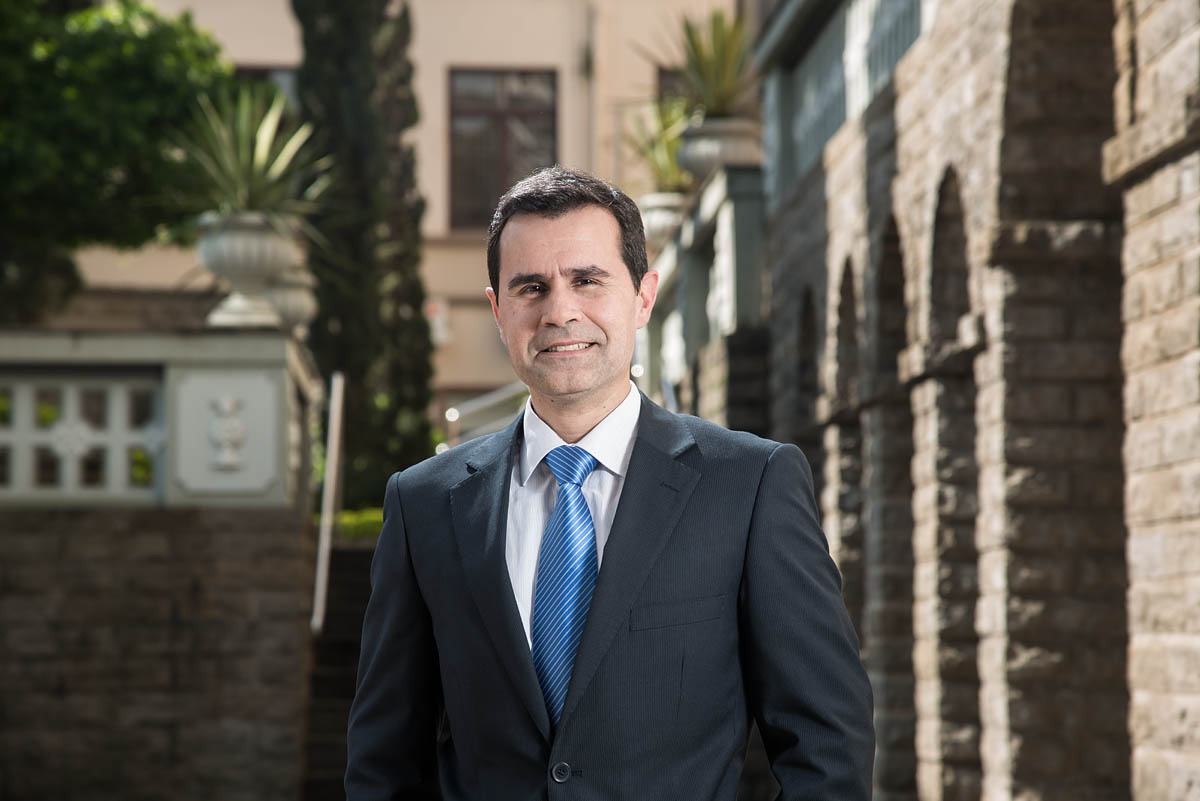





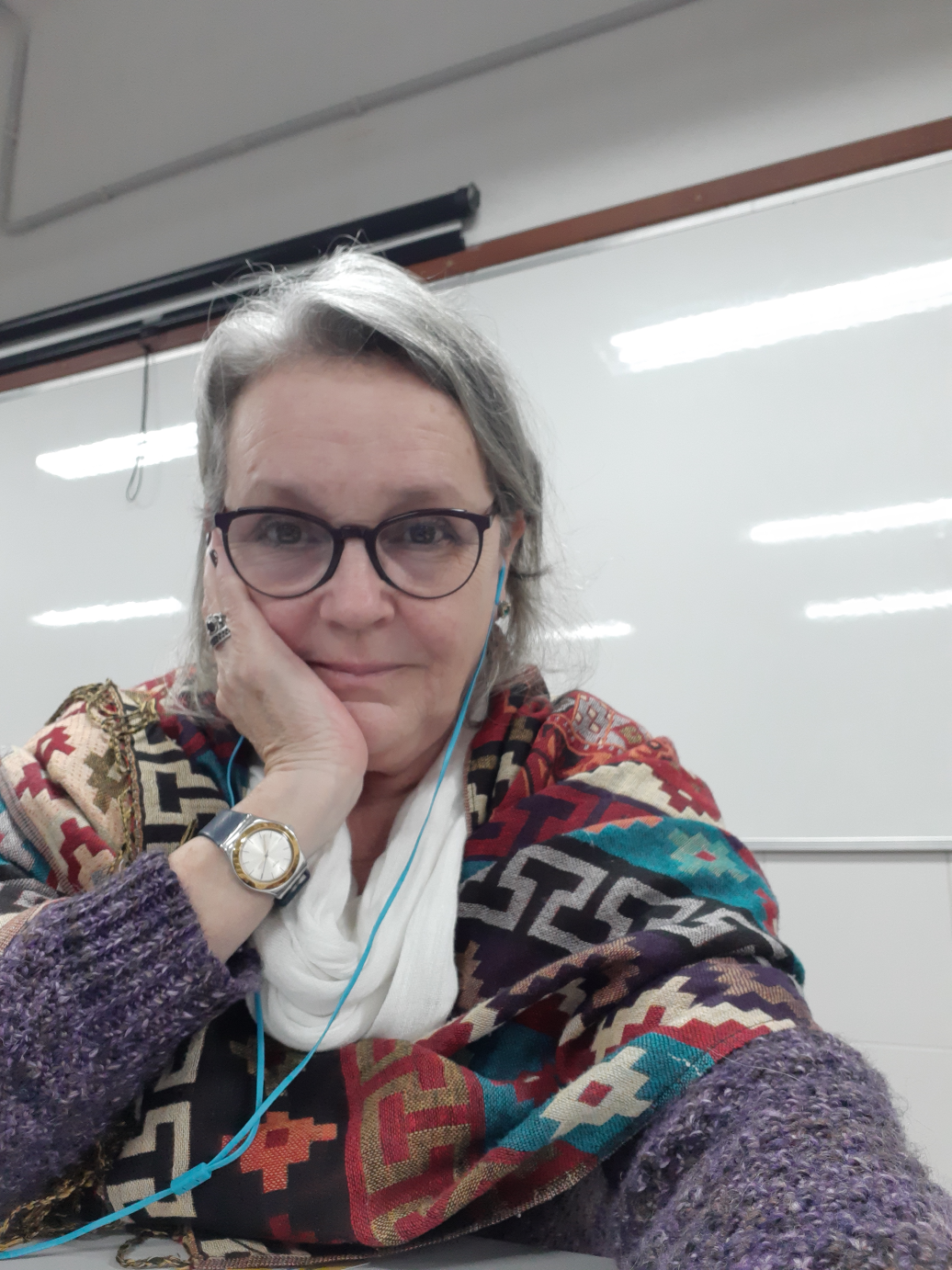
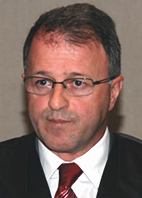
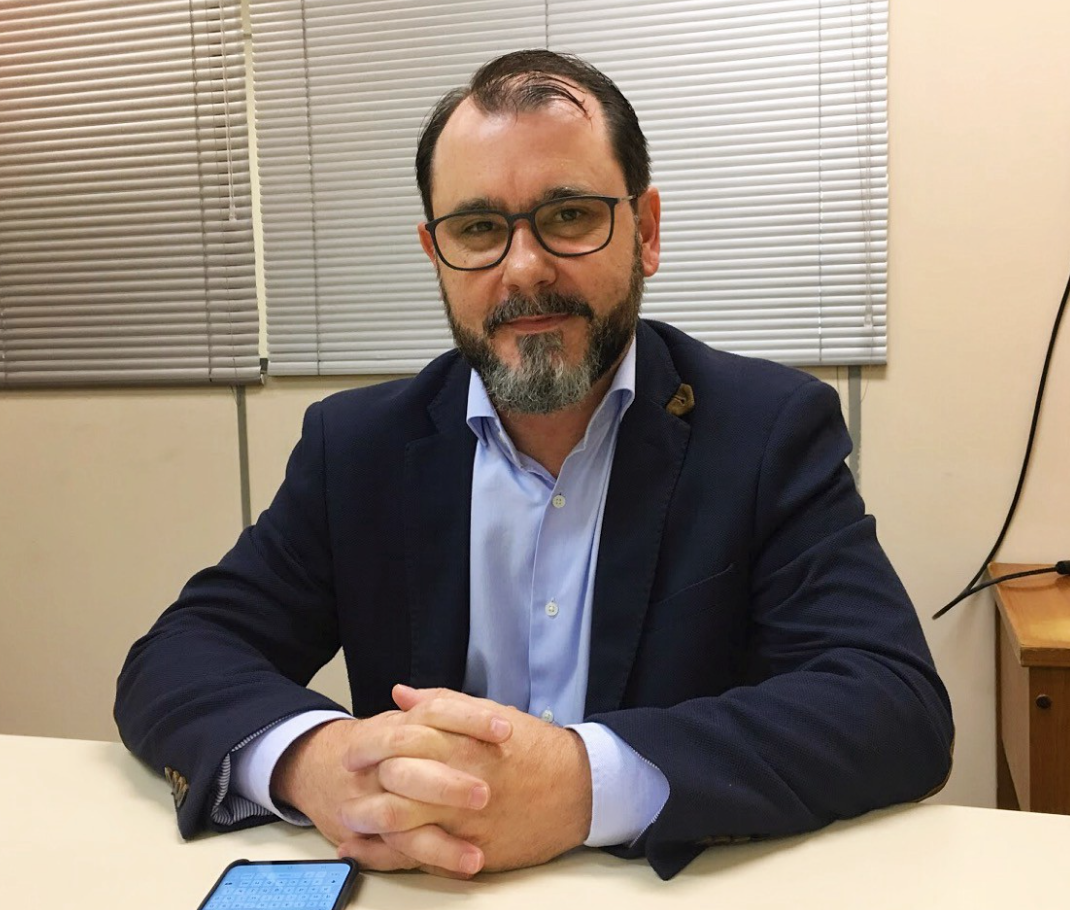

.jpg)
